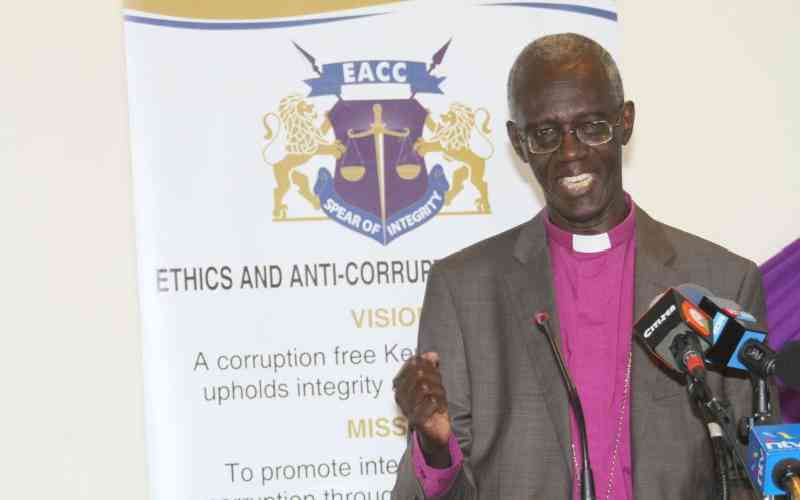×
The Standard e-Paper
Stay Informed, Even Offline

Six years after he was picked to helm the country's much-scrutinised anti-corruption body, Eliud Wabukala's tenure came to a quiet end Tuesday with many struggling to identify exactly what legacy he has left behind.
It would not be an understatement to say that expectations were sky-high after the retired archbishop of the Anglican Church of Kenya was appointed chairman of the Ethics and Anti-Corruption Commission in January 2017.